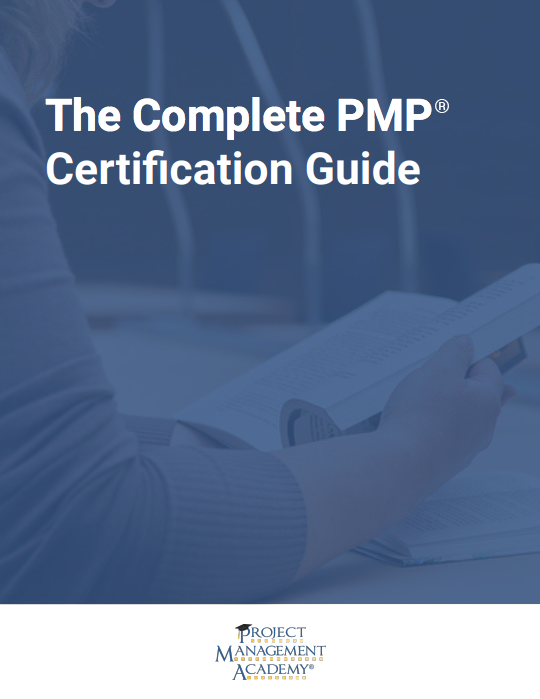The Project Management Academy Blog
Get the latest industry news, trends and insights you need to be the most effective Project Manager.
Professional Development | Project Management | Training and Development
When it comes to project management, the future is now.
Share
Are you ready to take your project management approach to a new level? One of the most popular project management approaches today is commonly referred to as Agile. Agile is more of a mindset then a defined methodology and is purposefully lightweight and adaptable. In organizations that adopt agile and have projects with high complexity or ambiguous requirements, projects are completed at a rate of 75%, while companies that use more traditional project management approaches for this type of work only have a 56% project success rate.
Share

Learn what steps you need to take to become a PMP certification holder and subscribe to our blog.
Over the past few years, you may have noticed more and more job postings for certified project managers popping up. Project management experts are in high demand, because it’s a role that can ensure major projects are executed successfully.
Share
For many in the project management industry, Agile and Scrum are terms you have likely heard for a while. And at first glance, it can feel like some people use the terms Agile and Scrum interchangeably. However, these terms have specific meanings, so it’s important to understand Agile vs. Scrum, and how they work together help you get your work done.
Share
Agile | PMI-ACP | Project Management
For those that operate in the project management space, you’ve likely heard a lot about Agile Methodologies. And while you may have a vague idea of what Agile means, it’s hard to picture the real-world benefits of Agile without a comprehensive understanding to this project development approach.
Share
PMP Certification | PMP Exam Prep
It's no question that study guides are essential for passing the Project Management Professional (PMP)® Certification Exam. But, every aspiring PMP® credential holder has different schedules and learning styles, which means you need a PMP exam prep program that offers a wide variety of materials to meet everyone’s needs.
Share
PMP Certification | PMP Exam Prep
Have you decided to take the Project Management Professional (PMP)® certification exam? If so, congratulations! This is the first step to moving up in the field of project management. But, before you can sign up to take the exam, you should first take a project management training course to help you adequately prepare.
Share
Are you preparing to take the Project Management Professional (PMP)® exam and become a Project Management Professional® credential holder? If so, you’ll feel more comfortable taking the exam when you know what to expect.
Share
Becoming a Project Management Professional (PMP)® credential holder is a huge accomplishment. If you have earned your PMP credential, you have joined the ranks of proven project management experts. And while this is an accomplishment you should certainly be proud of, there are more requirements to meet if you want to maintain your active PMP certification status. So much emphasis is placed on meeting the PMP certification requirements and passing the PMP certification exam, that many PMP credential holders may fail to realize that there is more work to be done. In fact, the work to maintain your status should begin the moment you pass the PMP exam! Let’s look at some common questions PMP and aspiring credential holders have about how to maintain the PMP certification. How Do I Maintain the PMP Certification? In short, you maintain the PMP certification by continuing to earn PDUs, which promote continued learning and industry engagement.
Share
Are you planning to pursue a career as a Project Management Professional® credential holder? If so, you’re making an exciting decision! Project Management Professional (PMP)® certification holders have a much higher earning potential than their non-certified counterparts. A PMP® credential holder earns 22% more on average than project managers who haven’t earned their certification.
Share